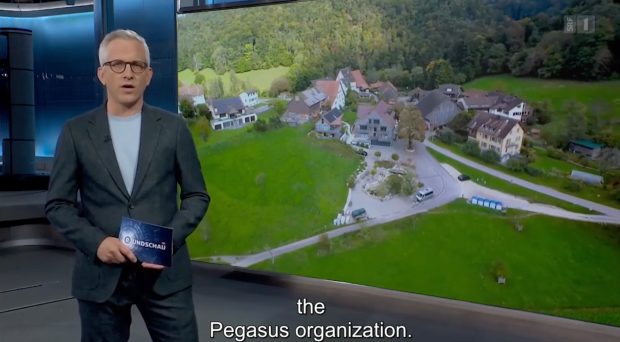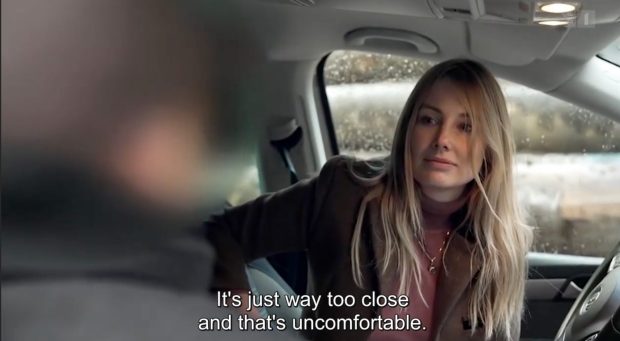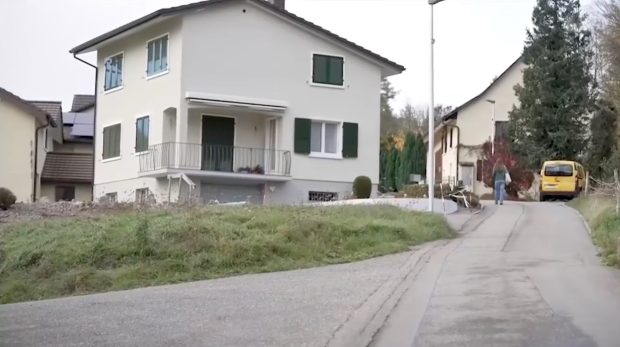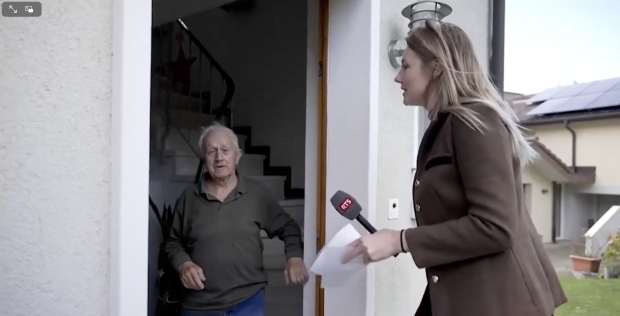October 31, 2025
Pegasos Reignites Controversy over Assisted Suicide in Switzerland
Watch the News Report (in English)
British families accuse the Swiss association Pegasos of helping their loved ones die without any real medical justification.
Based in the canton of Solothurn, the organisation defends its legality and ethics, but its methods have reignited the debate on the limits of assisted suicide in Switzerland.
In the suburbs of London, Judith Hamilton is living a nightmare. Her 47-year-old son Alastair had simply told her that he was going on holiday to Paris.
A few days later, the police discovered that he had actually taken a plane to Switzerland to die, with the help of Pegasos, an assisted suicide association. ‘He hugged me and said, “I love you, Mum.” I didn’t know it was goodbye,’ says Judith.
Alastair suffered from unexplained abdominal pain, but he was not at the end of his life. ” His life wasn’t perfect, but he still had a life that thousands of people would have been happy to have,‘ adds his mother.
Looking at his bank statements, she discovers a payment of 12,000 Swiss francs to Pegasos. ’It’s like a business. If you have enough money, they offer you a service,” she says.
An organisation at the heart of criticism
Founded in 2019, Pegasos mainly targets foreigners. Its conditions are simple: you must be over 18, be deemed lucid and pay the costs of the process. Unlike other Swiss associations, it does not require an incurable illness.
A model that scandalises David Canning, whose sister Anne took her own life in the canton of Solothurn in January.
‘I thought there would be a psychiatric examination, an interview, that it would take several days. In reality, everything was done in the morning,’ he says.
Pegasos has set up shop in Roderis, a quiet hamlet in the Solothurn municipality of Nunningen, where it operates in a brand-new building. The residents, however, say they feel uncomfortable.
‘We received a letter announcing their arrival. We had to accept reality,’ says one local resident.
The mayor of Nunningen, Philipp Muster, is now seeking to have the association’s building permit revoked.
A petition with several hundred signatures has been filed against the presence of Pegasos.
A vague legal framework
In Switzerland, Article 115 of the Criminal Code regulates assisted suicide: it is only permitted if it is not motivated by selfish interests. ‘If you get rich from it, it’s no longer altruistic,’ explains Meret Rehmann, a lawyer in Basel.
‘The problem is proving how the money is used,’ she adds.
This grey area fuels mistrust among other players in the sector. ‘These are cases we would never carry out,’ says Jean-Jacques Bise, president of Exit Suisse Romande. ‘With us, the request must be justified, repeated and validated by a doctor,’ he adds.
The question of price also raises questions. Exit Suisse Romande charges CHF 100 for end-of-life assistance, compared to CHF 10,000 at Pegasos.
Pegasos defends itself
When contacted by RTS, the association refused all requests for interviews. On its website, it invokes a ‘fundamental human right’, that of choosing the manner and timing of one’s death.
However, a Pegasos employee agreed to answer some questions. From the United Kingdom, Sean Davidson helps organise trips to Switzerland. For him, the organisation just wants to help foreigners benefit from Swiss assisted suicide law. Money is not the driving force.
“I find Pegasos’ service very efficient. They want to minimise the stress and difficulty of coming from a foreign country, which is already complicated in itself, without all the complex paperwork.
It’s very simplified, very efficient, but it strictly complies with Swiss law. They carefully check medical documents and conduct a very thorough psychiatric and medical assessment of patients,‘ he explains.
For Sean Davidson, all Pegasos clients are fully convinced and determined. However, he acknowledges that things have not always been perfect. ’Mistakes have been made, but they will not happen again.
This has led to a change in Pegasos’ policy.
The association has a broader definition of admission criteria and a learning phase was necessary. Now, they apply a very strict rule: anyone coming to Switzerland must have informed their family.
There must be a discussion between the person coming, their family and Pegasos,” he explains.
Relatives not informed in the right way
These arguments are far from convincing Megan Royal. The mother of this English woman went to Switzerland to die this summer, after the introduction of Pegasos’ new procedures. She is still upset by the coldness with which she was informed.
“They sent me a message on WhatsApp. (…) It’s an insult. It was all done without any dignity,” she says.
Her mother, Maureen, was 58 years old. She suffered from pain that doctors had been unable to diagnose and, according to her daughter, also from mental health issues.
This time, Pegasos had decided to consult relatives in writing. But her mother allegedly pretended to be Megan in an email.
‘They said that I had verified my mother’s real letter and that they had verified my letter by contacting me via a fake email (…) If they had simply checked this, they would have seen that they were writing to my mother and not to me,’ she says.
Following this incident, Pegasos promised to verify the identity of relatives through video calls. But for Megan, it’s too late.
‘If Pegasos had kept its promise, if Pegasos didn’t exist in an ideal world, all the families who have gone through what we have gone through would not be in the pain we are in,’ she says.
For Megan, a long period of mourning is beginning.
And she is not alone in this situation.
According to information from RTS, between 200 and 300 people each year choose to die in Switzerland with the help of the association.
Watch the News Report (in English)



